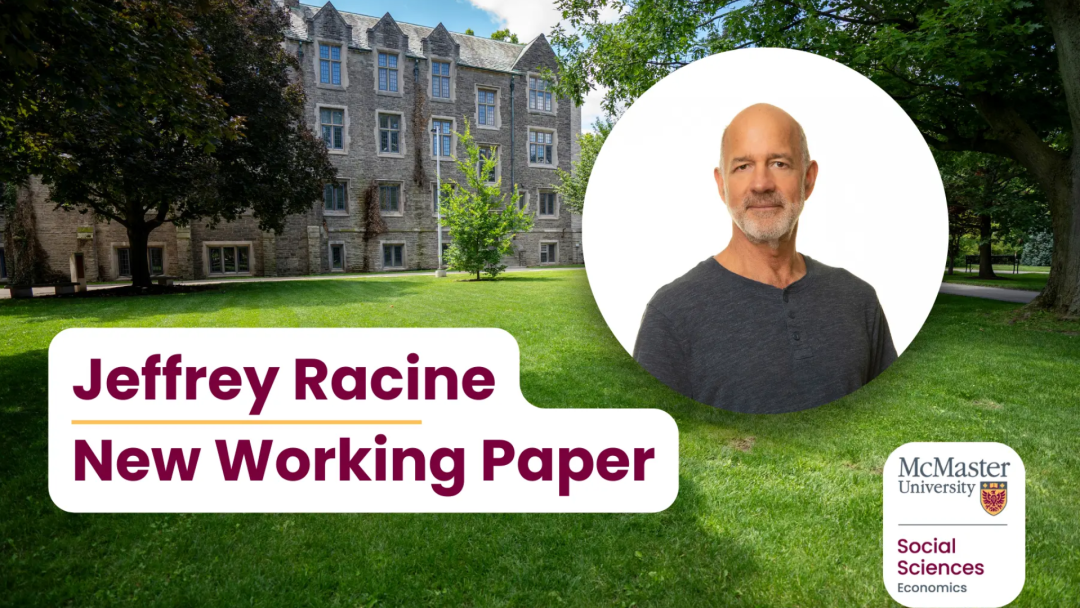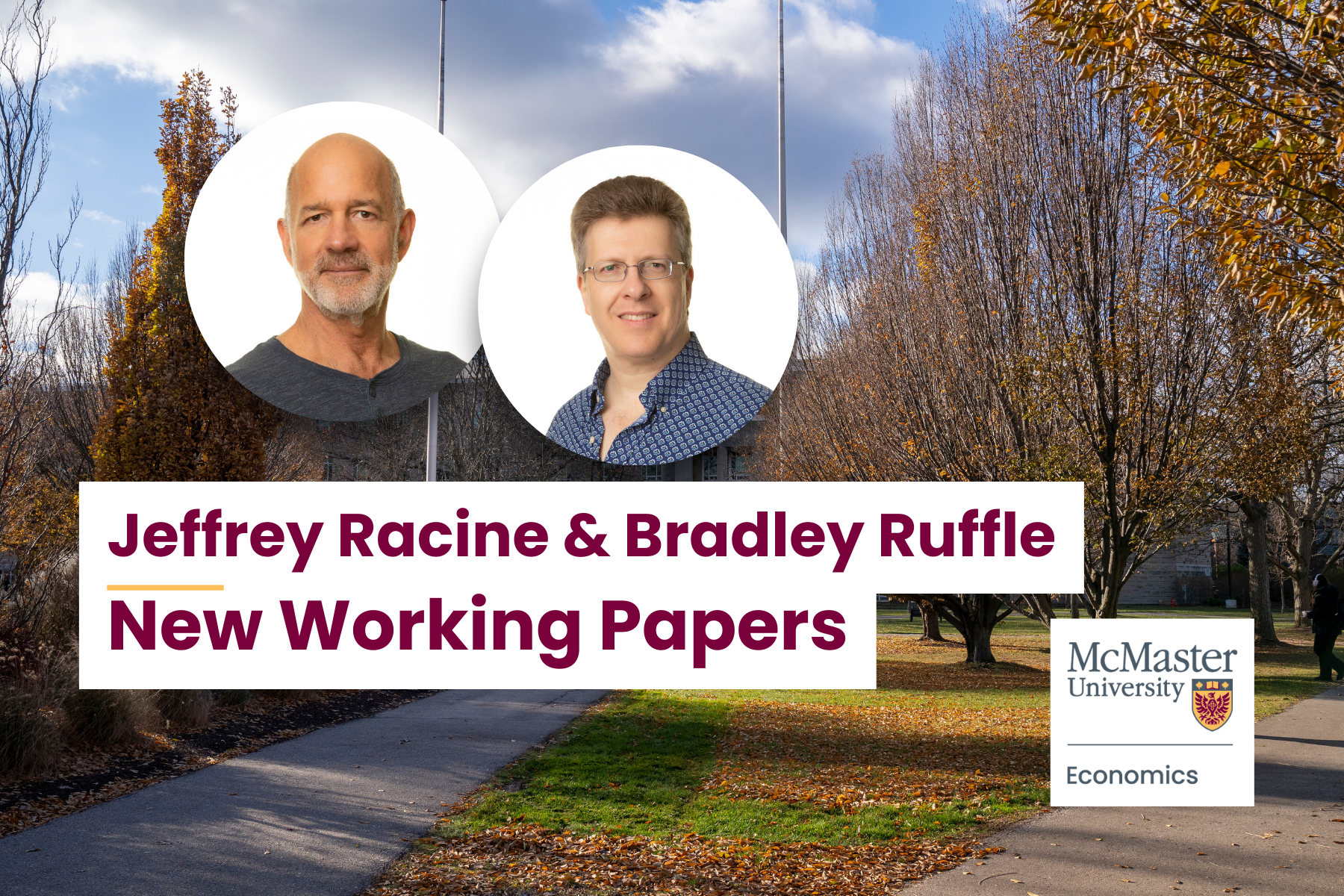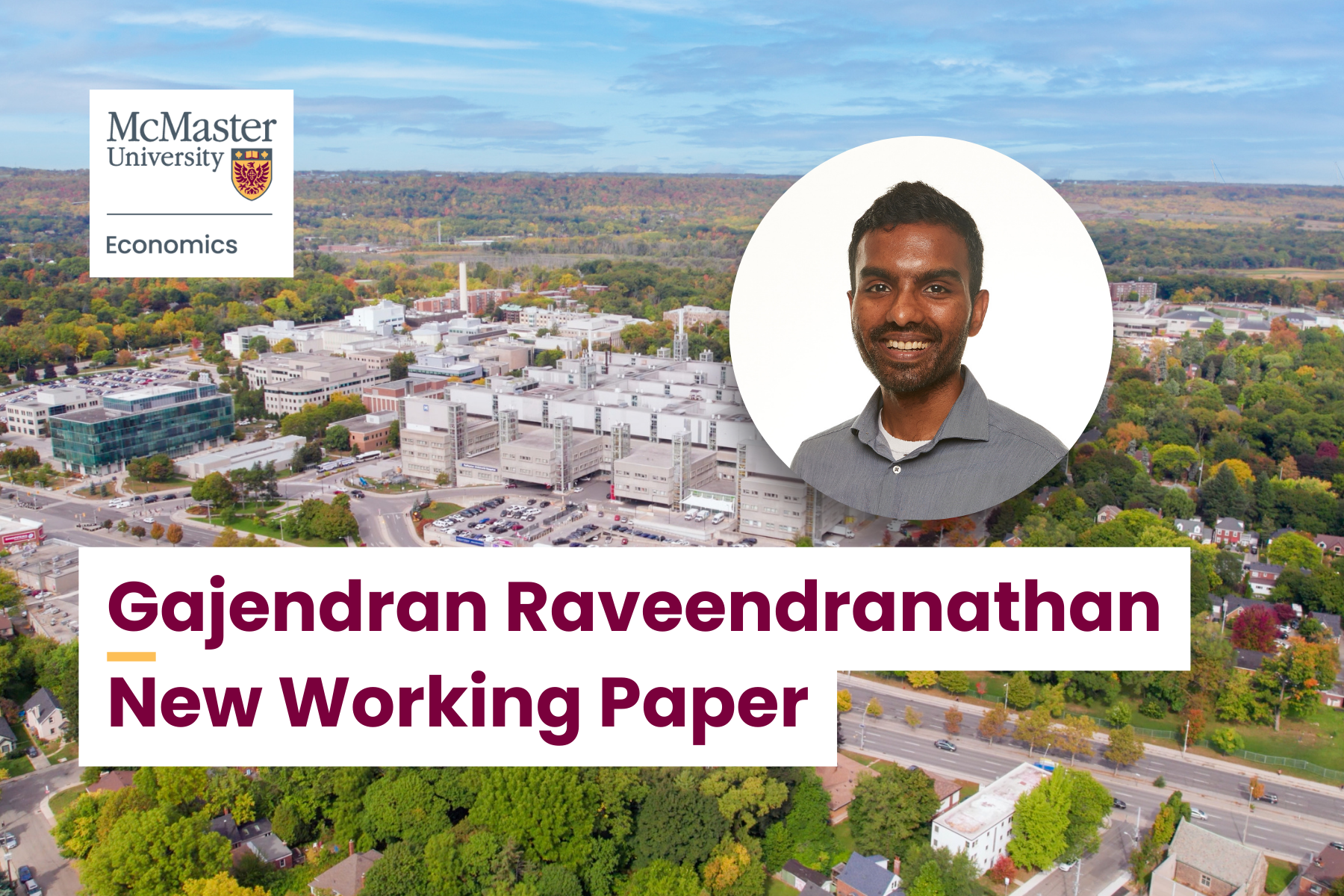Two New Department Working Papers: Jeffrey Racine

We have two new working papers from Professor Jeffrey Racine.
Jeffrey is a Professor for the Department of Economics, his research areas are in econometrics, and statistics.
BOOTSTRAP INFERENCE ON A FACTOR MODEL BASED AVERAGE TREATMENT EFFECTS ESTIMATOR
The first working paper is titled, “Bootstrap Inference on a Factor Model Based Average Treatment Effects Estimator”. Written alongside Luya Wang, Post-Doc from Stanford University, as well as Qiaoyu Wang, Assistant Professor from Capital University.
Abstract
We propose a novel bootstrap procedure for conducting inference for factor model based average treatment effects estimators. Our method overcomes bias inherent to existing bootstrap procedures and substantially improves upon existing large sample normal inference theory in small sample settings. The finite sample improvements arising from the use of our proposed procedure are illustrated via a set of Monte Carlo simulations, and formal justification for the procedure is outlined.
LOCALLY ADAPTIVE ONLINE FUNCTIONAL DATA ANALYSIS
The second working paper is titled, “Locally Adaptive Online Functional Data Analysis”. Written with Valentin Patilea, Professor of Statistics at ENSAI.
Abstract
We consider the problem of building adaptive, rate optimal estimators for the mean and covariance functions of random curves in the context of streaming data. In general, functional data analysis requires nonparametric smoothing of curves observed at a discrete set of design points, which may be measured with error. However, classical nonparametric smoothing methods (e.g., kernels, splines, etc.) assume that the degree of smoothness is known. In many applications functional data could be irregular, even perhaps nowhere differentiable. Moreover, the (ir)regularity of the curves could vary across their domain. We contribute to the literature by providing estimators and inference procedures that use an iterative plug-in estimator of ‘local regularity’ which delivers a computationally attractive, recursive, online updating method that is well-suited to streaming data. Theoretical support and Monte Carlo simulation evidence is provided, and code in the R language is available for the interested reader.
For the full set of working papers visit RePEC/ideas
Keep up to date with Jeffrey Racine
Departmental NewsRelated News
News Listing

Two New Department Working Papers: Jeffrey Racine & Bradley Ruffle
Departmental News, New Working Paper
December 12, 2024

New Department Working Paper: Gajendran Raveendranathan
Departmental News, New Working Paper
November 19, 2024

